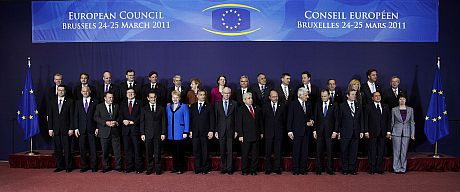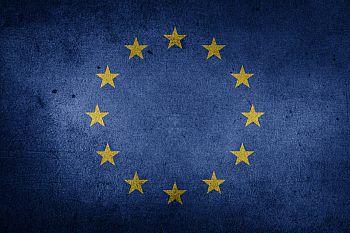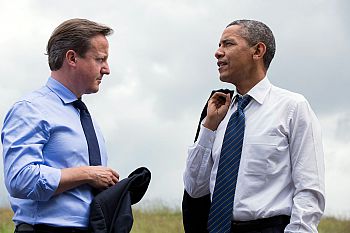Heaven or hell? Brexit legal issues analysed through 'Hotel California' lyrics
Erika Szyszczak is Professor of Law in the School of Law, Politics and Sociology at the University of Sussex, and a member of the University's UK Trade Policy Observatory.

This post sets out some of the legal issues arising after the referendum of 23 June 2016, taking a generous liberty with the interpretation of the lyrics of The Eagles’ song “Hotel California”.
“You can check-out any time you like”
Well you can’t. Original accession to the EEC was predicated upon an assumption that a Member State was committed to the EEC; there was no withdrawal arrangement in the original 1957 EEC Treaty. The integration process was (and is) flexible. European integration was built on the loosely worded aspiration of “an ever closer union” [an idea often criticised and ridiculed as having no precise legal meaning].
It is of course true that Greenland successfully negotiated a quickie divorce from the then EEC in 1985, negotiated by Denmark through an amendment to the EEC Treaties. EEC law ceased to apply to the territory of Greenland and the geographical area assumed a new status of an Overseas Territory of the EEC. However this method of leaving would require the use of Article 48 TEU which requires the unanimous approval of all the Member States, and is not a suitable legal, economic or political solution for the UK, given the trade interests at stake.
 Photo courtesy of Jeff Djevdet via Flickr (CC BY 2.0)
Photo courtesy of Jeff Djevdet via Flickr (CC BY 2.0)
The alternative solution is Article 50 TEU, introduced into EU law relatively recently, as part of the Treaty of Lisbon 2007 mopping-up exercise of the failed Constitutional Treaty consultations and negotiations. Article 50 TEU retains the concept of a voluntary withdrawal procedure and at first glance looks to be a straightforward process:
ARTICLE 50
1. Any Member State may decide to withdraw from the Union in accordance with its own constitutional requirements.
2. A Member State which decides to withdraw shall notify the European Council of its intention. In the light of the guidelines provided by the European Council, the Union shall negotiate and conclude an agreement with that State, setting out the arrangements for its withdrawal, taking account of the framework for its future relationship with the Union. That agreement shall be negotiated in accordance with Article 218(3) of the Treaty on the Functioning of the European Union. It shall be concluded on behalf of the Union by the Council, acting by a qualified majority, after obtaining the consent of the European Parliament.
3. The Treaties shall cease to apply to the State in question from the date of entry into force of the withdrawal agreement or, failing that, two years after the notification referred to in paragraph 2, unless the European Council, in agreement with the Member State concerned, unanimously decides to extend this period.
4. For the purposes of paragraphs 2 and 3, the member of the European Council or of the Council representing the withdrawing Member State shall not participate in the discussions of the European Council or in decisions concerning it.
5. A qualified majority shall be defined in accordance with Article 238(3)(b) of the Treaty on the Functioning of the European Union.
6. If a State which has withdrawn from the Union asks to rejoin, its request shall be subject to the procedure referred to in Article 49.
However,
Step 1: the UK can voluntarily decide to withdraw from the EU in accordance with its own constitutional requirements. On closer reflection, academic and practising lawyers are perplexed as to what are the constitutional requirements. A taste of these differing views, and of the complexities and lack of consensus therein, can be found on the UK Constitutional Law Blog.
It is arguable that the UK should trigger Article 50(1) TEU as quickly as possible, and that the EU, comprised of all the Member States and its Institutions should then negotiate in good faith for the future stability of European integration. This is a duty derived from Article 4(3) TEU, the so-called “solidarity” or “fidelity” clause:
Pursuant to the principle of sincere cooperation, the Union and the Member States shall, in full mutual respect, assist each other in carrying out tasks which flow from the Treaties.
This entails the UK, the EU and its Member States working positively towards a solution to Brexit, and not hindering the process. Arguably, the uncertainty as to how the UK will extricate itself from the EU has already jeopardised the future of the EU, and the form a future relationship may take.
The success of the Brexit referendum result has fuelled Euro-scepticism in other Member States; triggered the potential for economic instability, alongside actual or threats of relocation of businesses; it has caused uncertainty for British nationals living and studying and working in the EU and also for other Member State nationals living in the UK. The pending challenge to the legal process of implementing the Brexit decision will not be heard by the Divisional Court until mid-October 2016, and a contingency is in place for a leap-frog appeal to the Supreme Court.
Step 2: The process appears to be weighted in favour of the EU. The European Council will develop the guidelines for the process but fears are expressed as to the willingness of the EU and the other 27 Member States to co-operate with a Member State that has hitherto been seen as an awkward partner.
The major problem facing the UK is to have some clear idea of the future relationship that it wants with the EU, and to have in place the new trade agreements with the rest of the world. Can the UK even start to have trade talks with non-EU states or do these have to wait until the UK has detached itself from its EU obligations?

The European Council in 2011.
Step 3: The timeframe for the withdrawal agreement is very short: a mere 2 years from the date of the trigger of Article 50 TEU. There is the possibility of an extension granted by the European Council and with unanimous support of the Member States.
Would the UK be able to complete the complex agreement for its future relationship with the EU in two years? Article 50 TEU implies that such an agreement would have been contemplated by the end of the withdrawal period, but the UK could not enter into the new agreement with the EU while it is still part of the EU, thus the risk of a hiatus in all aspects of UK-EU benefits and obligations is a serious possibility.
Step 4: The weakness of the UK bargaining position is seen in Article 50(4) TEU where the UK is unable to influence the negotiations between the remaining 27 Member States in the formal institutional framework of the Council or the European Council. A certain amount of shuttle diplomacy between EU capitals is inevitable.
Step 5: A Member State is able to choose the option of leaving the EU and re-joining. While perhaps this may not be as protracted as the current negotiations with would-be accession states, it is very unrealistic to assume that the EU would allow the UK a new “pick and mix” accession to the EU.
One issue that is not covered in Article 50 TEU is whether a withdrawing Member State can change its mind. At one [imaginary] end of the spectrum this could be a political option if, for example the withdrawal negotiations are sympathetic to the UK position and concessions are made to make the EU attractive once again to the UK. Or a more realistic scenario could be where there is a change of political mood in the UK.
 Could the UK get a second chance to stay in the EU?
Could the UK get a second chance to stay in the EU?
However a worse scenario would be if the withdrawal negotiations break down. Article 50 TEU appears to not allow a Member State to prevaricate: Brexit will mean Brexit if it is triggered. But the weight of legal opinion from Sypris, Edward and Wyatt appears to be in favour of the opposite interpretation: the UK could get a second chance to stay in.
A novel possibility in this sort of scenario might be to bring in one of the roving “elder statesmen” on the global circuit to mediate between the UK and the EU.
“But you can never leave”
A crucial question when recalibrating UK trade policy is, where will the UK align any new trade policies? The reality is that the legal relationship with the EU is a priority, for the reasons set out in the First Briefing Paper of the UK Trade Policy Observatory.
The proponents of the Leave campaign describe a glorious nostalgic and sentimental landscape of free trade, usually limited to the geo-political area of Europe in its widest sense, but embracing the special relationship with the US.
 US President Barack Obama has said that the UK would be
US President Barack Obama has said that the UK would be
"at the back of the queue" for trade deals following Brexit.
The sentimentality of reviving the special relationship with the United States was put into doubt with President Obama’s “back of the queue” remarks pre-Brexit. But in the US, trade liberalisation projects have become contentious – they have featured prominently in the current presidential nominee debates.
Obama is under pressure to realise the ratification of the Trans-Pacific Trade Deal (TTP) before his term of office ends. TTP is not that popular in the EU but if it is successfully ratified the UK would be left out in the cold.
Looking at the trade liberalisation landscape it is evident that such deals are becoming harder to conclude in a different, and more sophisticated landscape. The term “bilateral” is a myth. Rather than a quiet dinner aux deux, trade agreements are large parties. Any new deals will have to fit with a country’s existing trade arrangements. The WTO places a restraint on any bilateral negotiations through the most favoured nation clause: members may not discriminate against other members and can only grant better access to markets in the form of a trade agreement.
International trade deals also cover areas beyond pure trade issues such as tariffs – matters included by the EU since the Single European Act 1985, as part of the spill-over competence to make a single market work: labour standards, environmental standards, product standards and mutual recognition. Thus the UK risks missing the party at the global negotiating table. Countries such as India, China, Japan and South Korea that are already conducting trade agreements with the rest of the world are very unlikely to want to give the UK deals on reductions of tariffs.
The analysis of the TTP by Allee and Lugg is revealing, showing the likely US approach to any future trade bargaining with the UK. They show that the TTP was not written from scratch, even though Obama protests that it is a “new type of trade deal” of the highest standard.
Instead, they show the political motivation behind the agreement is primarily to protect US trade interests and that the TTP trade rules are skewed heavily in favour of the US. The US believes that, if it does not write the rules of international trade itself, China will.
Allee and Lugg show that most of the language in the TTP agreement is “copy-pasted verbatim” from earlier US trade agreements, especially where controversial issues such as investment are concerned: up to 90 percent of the text in the TTP is from past U.S. investment chapters. Getting the US to do the heavy lifting may ameliorate the disadvantages of the lack of UK trade negotiators. But at what cost?
“This could be heaven or this could be hell”
Disclaimer:
The opinions expressed in this blog are those of the author alone and do not represent the opinions of the University of Sussex or UK Trade Policy Observatory.
Mailing list
Sign up to receive updates on UKTPO activity.




